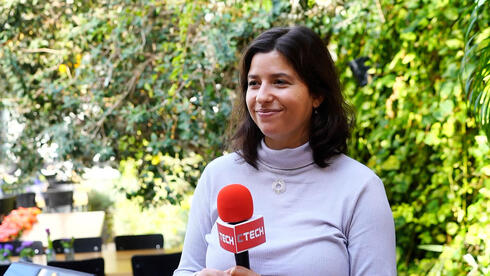
OpinionAI in academia: The revolution we must embrace now
Opinion
AI in academia: The revolution we must embrace now
"AI presents a golden opportunity to make education more accessible, efficient, and tailored for all students," writes Laurent Fratty, Head of Education at Microsoft Israel.
Artificial Intelligence (AI) is entering academia at just the right time – as the new academic year began last month. Now, with thousands of students enrolling in courses, eager to acquire knowledge and prepare for the job market, the question arises: is our academic system ready to guide them into a rapidly changing reality? This is not merely a suggested integration but an essential one, and if implemented correctly, it has the potential to redefine higher education and prepare students for a world of swift transformations and fundamentally different employment demands than those we have known.
As someone who grew up during numerous technological revolutions, such as the internet revolution, I’ve learned an essential life lesson: in a rapidly evolving world, the only way to survive and thrive is to integrate and move forward with technology, rather than wait and lag behind until the full potential of a revolution is understood. This is also the critical question that our academic system must face today.
In the 1980s, when the personal calculator was introduced, concerned voices argued that this innovative tool would suppress independent thinking. In reality, the opposite occurred. The calculator allowed mathematicians to focus on advanced analyses instead of spending time on complex technical calculations. As a result, the number of students achieving high levels in mathematics significantly increased. This example illustrates how the right technological tool can enhance educational quality. Similarly, AI today can serve as the “calculator” of the knowledge world, helping students reach their full potential.
A significant advantage of integrating AI is its ability to provide a personalized learning experience for each student. While traditional academic systems strive to offer individual attention, in practice, lecturers must divide their time among dozens of students, limiting their capacity for personal support. AI can change the game by providing every student with a virtual personal tutor to accompany them throughout their learning process. This means that even students from peripheral areas can benefit from high-quality, personalized education, regardless of their location or economic background. Providing accessible, quality education for all is not just a social vision but an economic necessity; it enables the creation of a skilled and high-quality workforce, fostering economic growth and strengthening national competitiveness.
Moreover, AI offers a unique opportunity for collaboration between academic institutions and industry. In an era where innovation is the key to success, academic institutions can use AI to bridge the gap between theoretical studies and practical market demands. AI platforms can analyze market trends in real-time, helping design up-to-date and more relevant curricula, ensuring that graduates are ready to integrate into leading industries immediately upon graduation. Additionally, collaborations between higher education institutions and leading tech companies can lead to the development of advanced research, tailored internship programs, and practical solutions to social and economic challenges.
It is also important to emphasize AI’s potential to improve the reliability of information students access. Today, online information often comes from unreliable or manipulated sources. Using AI systems anchored to trustworthy databases ensures that students’ questions are answered based on reliable facts rather than potentially misleading information.
Beyond the social and economic benefits, AI can also free academic staff from bureaucratic tasks, allowing them to focus on quality research and teaching. Currently, academic staff dedicate many hours to data collection, report management, and assessments instead of investing their time in teaching and research. Integrating AI-based automated tools can transform lecturers into more professional and engaged mentors, capable of giving students the full attention they deserve.
The ability to embed AI into the academic system already exists. The question now is whether we will seize this opportunity and utilize it, or miss it and discover years later that our higher education system missed the train. Decision-makers in academia must mobilize for the task and lead a long-term initiative to transform education and shape the future of Israeli society.
The future is in our hands, and we cannot afford to wait. AI presents a golden opportunity to make education more accessible, efficient, and tailored for all students. The time to act is now.
The author is Laurent Fratty, Head of Education at Microsoft Israel.















